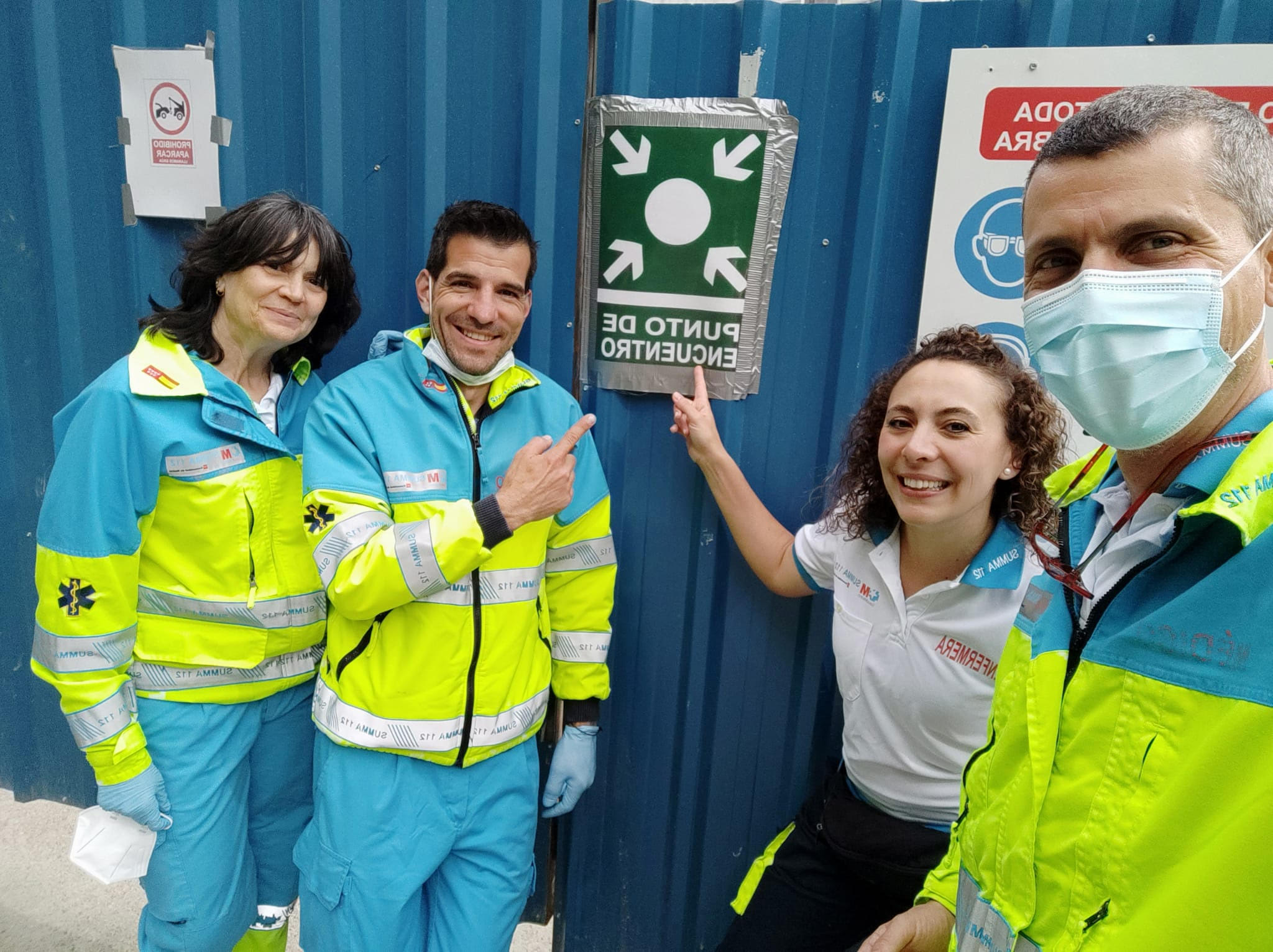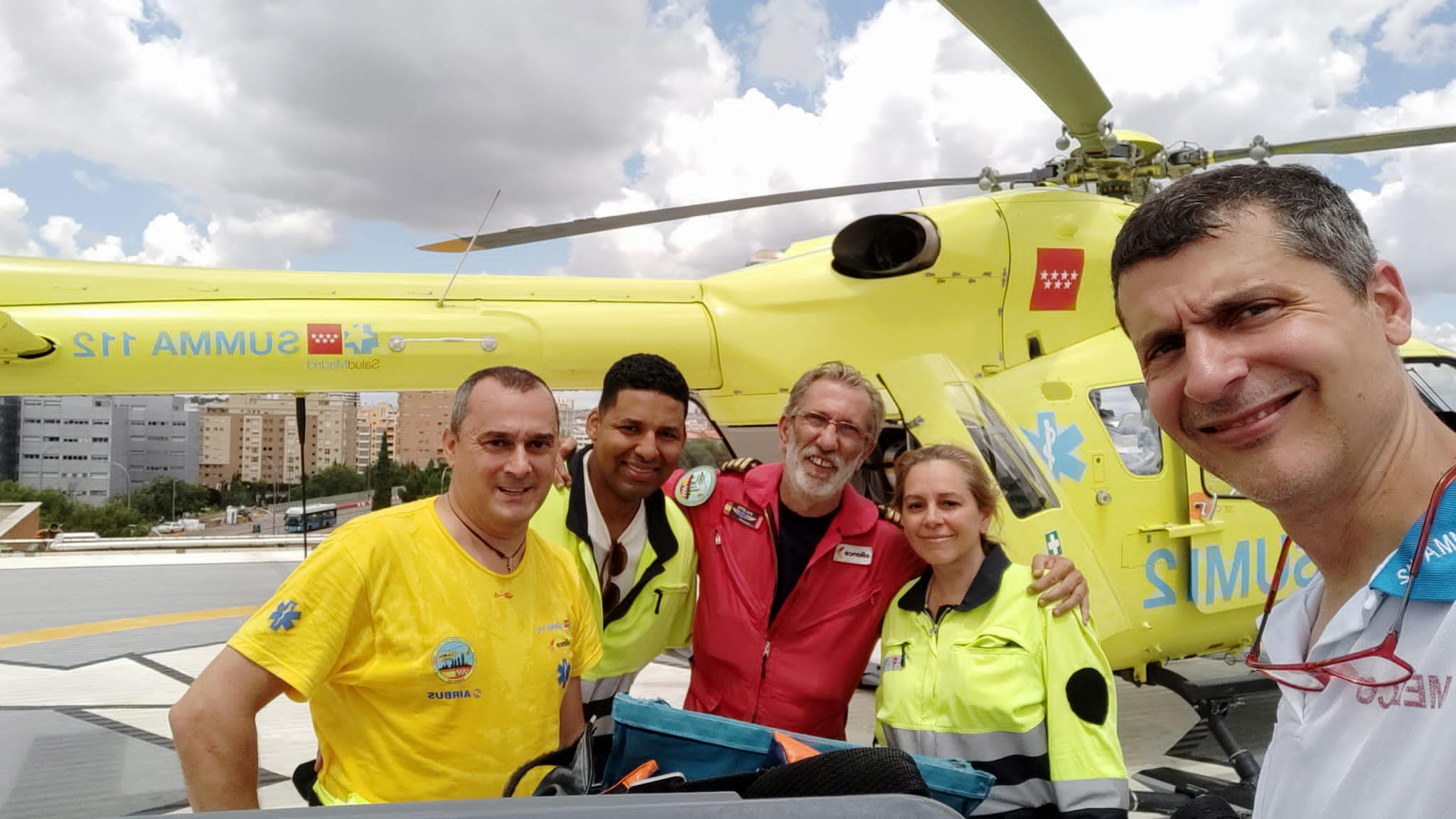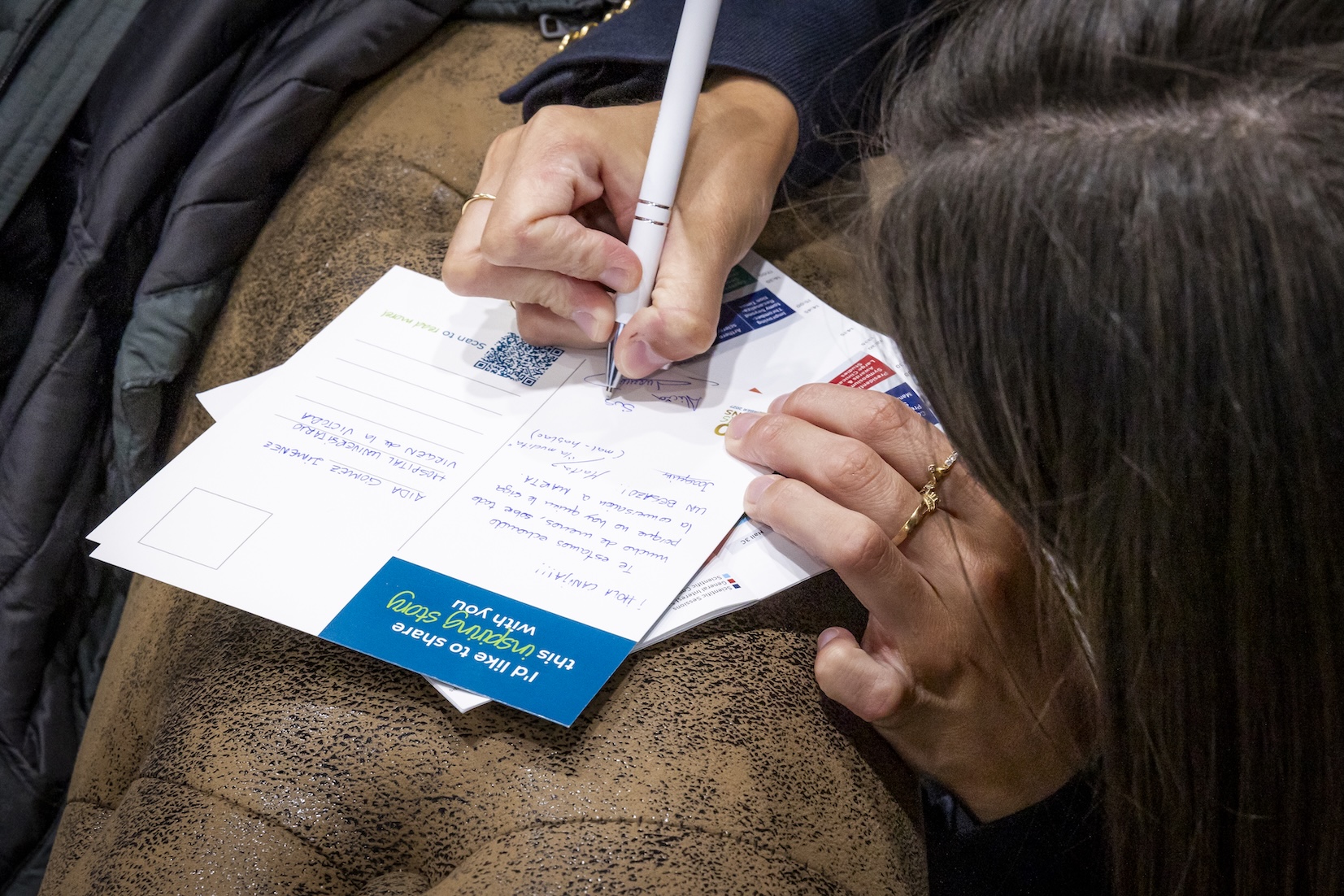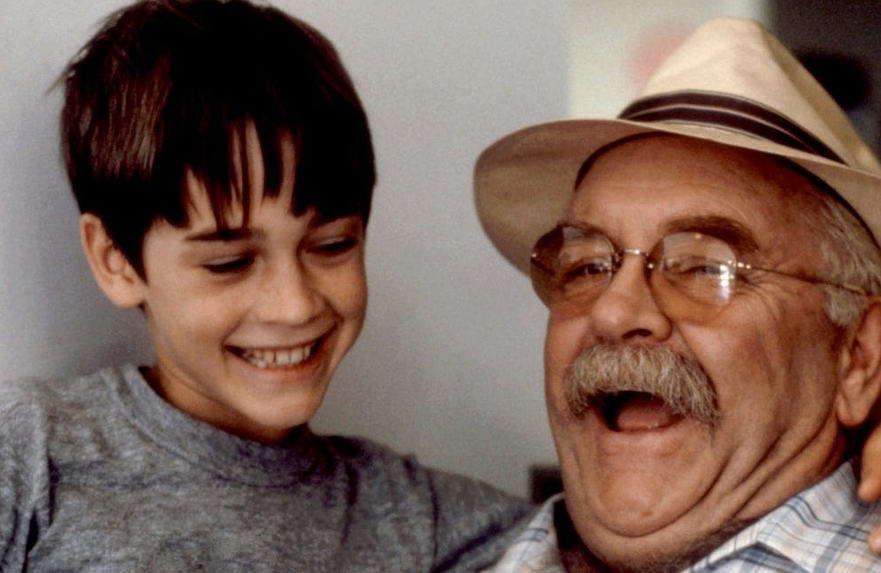
Az Mentőszolgálat Angels Awards díjátadót a Covid-19 világjárvány második évében indították el. A sürgősségi egészségügyi személyzet költségei mindenhol hatalmasak voltak, és a legtöbb országban alacsony volt a morál.
„A motiváció nagyon fontos most” – mondta Dr. Nicolás Riera, a madridi SUMMA 112 orvosi sürgősségi szolgálat stroke kódkoordinátora, aki a nemzetközi Mentőszolgálat szakértők egyike volt, akik segítettek a díjak létrehozásában. „Aparamedic csapatoknak valami újra van szükségük ahhoz, hogy újraindítsák gondolkodásmódjukat egy folyamatban lévő világjárvány keretében.”
Madrid a világjárvány epicentrumában volt Spanyolországban, ahol a koronavírus több mint 3,5 millió embert fertőzött meg, és több mint 78 000 életet követelt, ami zavarta az egészségügyi szolgáltatásokat, és komoly terhet vállalt a frontvonalbeli gyógyszerekre.
A csapatok közötti barátságos verseny szellemében tett erőfeszítéseik elismerése potenciálisan hatékony módja lehet a morál növelésének és az Mentőszolgálat-személyzet megjutalmazásának a játékuk emeléséért.
Fontos volt, hogy elismerjük a stroke gondozás kiemelkedően teljesítő Mentőszolgálat-csapatokat, ezért a díjak célja a teljesítmény javítása volt, kiemelve azokat a gyengeségeket, amelyeket célzott intézkedésekkel lehet kezelni.
„A díjak nem a múltbeli munkáról szólnak, hanem a jövőbeli teljesítményről” – mondta Petr Jaššo, a Cseh Köztársaság moravi sziléziai régiójának Mentőszolgálat vezetője, a 2021 októberében Lisszabonban megrendezésre kerülő díjátadó ünnepség előtt. Az ő hatásukat, ahogy megjósolta, „percek alatt megmérik”.
Gyengeség felismerése
A jövőben dr. Nicolas Riera lisszaboni elméjében tartotta a sürgősségi orvos munkáját, aki díj madridi SUMMA 112 orvosi sürgősségi szolgálat nevében díjat kapott. A Covid-világjárvány komoly terhet rótt a frontvonalban dolgozó egészségügyi szakemberekre a városában, és az díj valamivel vissza kellett állítani.
Az aranyérmesek azonban azt is jelezték, hogy van még mit fejlődni, és a díjkritériumok kulcsfontosságúak voltak abban, hogy hova összpontosítsák a figyelmüket. A SUMMA 112 szinte kifogástalan teljesítményt nyújtott minden kategóriában, csak egyet. A platina- vagy gyémántstátusz eléréséhez csökkenteni kell a színpadon töltött időt (OST), ami többek között a magas, sűrűn lakott spanyol főváros vertikális városi dizájnjának kihívását jelentette.
2022-ben a SUMA 112 csapat 100%-os eredményt ért el az előzetes értesítés (a megfelelő kórház azonosítása és előzetes értesítése) tekintetében a második futó évben. 4,5 percig borotválkoztak az OST-jükből is, de még mindig majdnem kétszer annyi ideig tartott, mint a nemzetközi irányelvek által javasolt maximum 15 perc. Amikor októberben újabb díj kaptak Berlinben, elkezdték átgondolni, hogy miért, Madrid nagyszámú magas lakóépületén kívül, a fejlődésre tett erőfeszítéseik is ilyen néma hatást keltettek.
A teljesítményük elemzésére irányuló megbeszélés felvetette annak lehetőségét, hogy az előzetes értesítés kezelése jelentős számú percet ad hozzá a színpadi érkezés és távozás közötti időhöz. E hipotézis vizsgálatához elemezték a kórház előzetes értesítési folyamatát minden olyan esetben, amikor a stroke-kódot 2022 decemberében aktiválták, egy hónapban, amelyben a medián OST 22 perc volt.
Az elemzés (amelynek eredményeit poszterként mutatták be az EUSEM 2023-on) azt mutatta, hogy a medián prenotifikáció kezelési idő (PMT) 8 perc volt, amikor – mint a legtöbb esetben – csak egy alkalommal hívtak fel egy kórházat, és elérte a 16 percet, amikor négy kórházat kellett hívni. Összességében a medián PMT 9 perc volt, ami az OST csaknem 45 százalékát tette ki. A kutatók arra a következtetésre jutottak, hogy az OST csökkentésére tett erőfeszítések a kórházi előzetes értesítési protokoll megváltoztatását vonnák maguk után.
A probléma meghatározása
Alicia Arjona Angels-tanácsadó elmondja, hogy a helyszínspecifikus feltételek hatással vannak a madridi értesítési menedzsmentre. Az Mentőszolgálat szolgáltatás egy egyedi, kórházi kezelést megelőző skálát, a Madrid-Direct Referral to Endovaszkuláris Centre (M-DIRECT) eszközt használ, amely nagyon pontos a trombektómiára alkalmas jelöltek azonosításában a trombektómiára alkalmas központokba történő közvetlen áthelyezéshez. A legtöbb spanyol várostól eltérően a mechanikus trombektómia a fővárosban 10 kórházban érhető el, de a trombektómián átesett betegek kezelésének kötelezettsége ezen kórházak között egy korábban elfogadott ütemterv szerint változik. Az ütemtervben szereplő kórház azonban visszautasíthatja a beteg elfogadását, ha már betöltötte a kapacitását. Ez jelenti a legrosszabb esetet, amikor az Mentőszolgálat-nek akár négy hívást is el kell indítania, hogy megtalálja azt a kórházat, amely elfogadja a beteg.
A kórházba érkezés előtt stroke-ellátás… szolgáltatóinak ellenőrzőlista szolgáló Mentőszolgálat Angels-díj segített az Mentőszolgálat-csapatoknak Európa-szerte a beavatkozási és fejlesztési lehetőségek felismerésében és kezelésében. Erőfeszítéseik nem tűntek ismeretlennek: 2021-ben kilenc díjból 63 van ebben az évben, köztük 19 Spanyolországban.
Bár a SUMMA 112 elnyeri első platina díj, ezt a véletlen előfordulásnak tulajdonítják: a kutatásuk által megerősített, a színpadi késések mögött rejlő nehézségeket még meg kell oldani.
De egy jól körülhatárolt probléma egy félig megoldott probléma, legalábbis Albert Einstein szerint. A díjak minden résztvevő országban többre tettek szert, mint pontos gyengeségeket: megváltoztatták a kórházba érkezés előtt stroke-ellátás… kapcsolatos beszélgetést, és fényjelzést nyújtottak a már régóta sötétben hagyott szisztémás problémákra.
Új megoldásokat is javasoltak a régi problémákra.
A komplexitás megoldása
A 2022. decemberi audiofájlok elemzése olyan problémákat tárt fel, amelyeket nem lehet csak a kórházi előzetes értesítési protokoll felülvizsgálatával megoldani. A kórházak és az Mentőszolgálat közötti nem hatékony interakciók jegyzőkönyvei elvesztek, különösen, ha ezeket a beszélgetéseket a bizalom hiányából eredő időpazarló kérdések miatt vonták le.
Az egyik fontos meglátás az volt, hogy az elmúlt század eszközeivel fejlett előzetes értesítést készítettek. A kihágás egy digitalizált folyamat, amely kiküszöböli az emberi hibákat vagy elfogultságot, és valós idejű információkat szolgáltathat a trombektómiás központok ütemterv szerinti kapacitásáról. Más szóval egy digitális folyamat, amely megegyezik Madrid stroke hálózatának összetettségével és az olyan diagnosztikai eszközök kifinomultságával, mint az M-DIRECT.
Az, hogy a SUMMA 112 végre az EUSEM 2024 gyémántgyőztesei között lesz-e, kevésbé fontos, mint az, hogy a strokestrokeos betegek gyorsabban érjék el a megfelelő kórházakat. A PMT-vel kapcsolatos beavatkozásaik, mint például az Mentőszolgálat Angels Awards, az élet megőrzésére irányulnak. Ahogy Petr Jaššo javasolta, a stroke-ok esetében az élet percek alatt mérhető.




